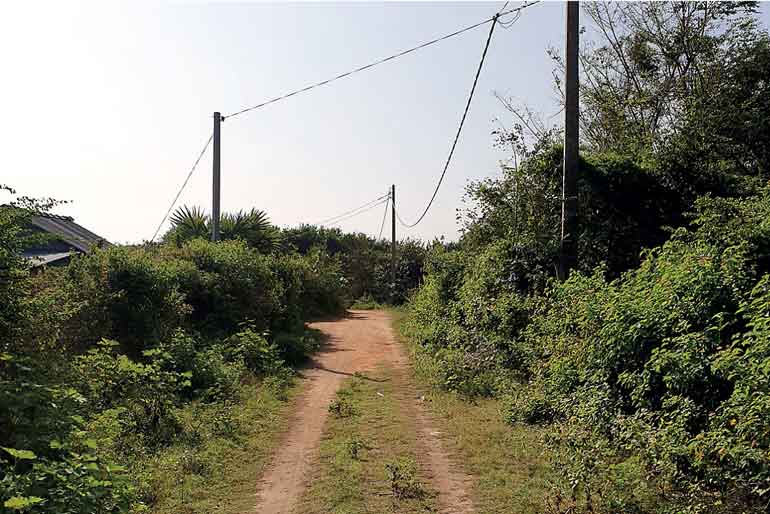Saturday Feb 21, 2026
Saturday Feb 21, 2026
Friday, 18 February 2022 00:00 - - {{hitsCtrl.values.hits}}

With support systems and an enabling environment, rural and remote areas have the potential to become hubs for capacity-building and entrepreneurship
Entrepreneurship is the process of setting up a business and taking on the risks of doing so. It is the search for new solutions to existing problems, for new ways to address issues within or beyond the country. If a start-up succeeds, it can generate significant profits, scale up, and establish itself as a permanent fixture of the business landscape. If it fails, entrepreneurs stand to lose their investment of finance, time, and labour without return.
country. If a start-up succeeds, it can generate significant profits, scale up, and establish itself as a permanent fixture of the business landscape. If it fails, entrepreneurs stand to lose their investment of finance, time, and labour without return.
Thriving new businesses are beneficial for individuals, communities, and the national economy. If they incorporate principles of sustainability, climate-friendliness, environmental protection, and social responsibility into their operations, they even have the potential to contribute to solving global challenges, such as climate change and biodiversity loss. Therefore, it is important to create an environment in which entrepreneurship can succeed and start-ups receive the necessary support to reach their full potential.
From local to global: Reaching out and scaling up
Sri Lanka has a pool of potential innovators and entrepreneurs who, if given the right support and guidance, can start businesses and implement ideas. More than just the ability and willingness to take risks, setting up a business requires seed funding, business and management skills, legal knowledge, strategic thinking, and communication skills. Particularly in rural areas, there is often limited access to relevant information and expertise on how to set up and manage an enterprise in practical terms, overcome challenges, and grow a customer base.
For this reason, it is key to connect different levels when promoting entrepreneurship, namely the local, national, regional, and global level. In Sri Lanka, many incubators and accelerators are based in urban areas and have limited outreach into other parts of the country. For potential entrepreneurs from rural areas, this means they either have to take an additional risk and move to Colombo or another city, or set up their business without the benefit of resource persons, workspaces, capacity-building, and access to investors.
How can entrepreneurs on the local level, particularly those from rural and remote areas, be supported within their communities? Key actions are related to identifying capacities, resources, and potential, setting up training programs and certificate courses, conducting workshops and open forums, creating focal points and help desks, supporting networks and groups to exchange experiences and learnings, and establishing capacity-building hubs and co-working spaces, support facilities, and local accelerators.
Measures like these can help to transform the local start-up ecosystems and turn rural areas into hubs for entrepreneurship that can serve as models and case studies for further activities. There is a great potential to take lessons learned and cross-disseminate them between different hubs and areas, especially those with comparable geographic, climatic, and socioeconomic characteristics. Similarly, learnings can also be taken from accelerators and incubators on the national level, as well as those from other countries within and beyond the South Asian region.
Many entrepreneurs will aspire to scale their enterprise beyond the local level to increase their market potential, reach a larger audience, and be able to interact and collaborate with other start-ups and businesses. Therefore, it is important to not set up these local hubs in isolation, but rather in active dialogue with other areas and with the national level. On the other hand, actions can also be taken on the national level to create a better environment for local entrepreneurship, for example through integration of entrepreneurship into national education curricula and business education, or by enhancing access to relevant information, guidelines, and toolkits.
Growing start-up ecosystems
When entrepreneurs and start-ups connect on different levels, they begin to form and grow complex business ecosystems. These ecosystems can revolve around a single centre of gravity, for example a university or an accelerator, but they can also become multi-polar, establishing multi-directional flows of information and investment, knowledge hubs, physical spaces, and media bubbles.
Similar to a natural ecosystem—such as a forest or grassland—, start-up ecosystems provide numerous ecosystem services that can be beneficial to start-ups within the ecosystem, but also to the wider community and economy. By providing examples and entry points, start-up ecosystems can attract new entrepreneurs, enhance an entrepreneurial mindset, increase availability of vital services, harness synergies, share and transfer risks, and attract larger investment from the corporate sector, angel investors, and other entities.
One key consideration for establishing hubs and ecosystems is to make them work not only for the economy, but also for the environment, the climate, and for society. If principles of sustainability, climate-friendliness, nature positivity, social responsibility, local supply chains, participation, and effective resource use should be embedded into capacity-building and support systems, this can facilitate a culture of responsible business conduct that targets the triple bottom line of people, planet, and profit.
In the age of climate change and the COVID-19 pandemic, there is a need for new approaches and innovative solutions. If entrepreneurs from all areas of Sri Lanka can receive adequate support, connect to the national, regional, and international level, scale up operations, and grow together into start-up ecosystems, they can provide such solutions as well as a range of direct and indirect benefits.
(The writer works as Director – Research and Knowledge Management at SLYCAN Trust, a non-profit think tank based in Sri Lanka. His work focuses on climate change, adaptation, resilience, ecosystem conservation, just transition, human mobility, and a range of related issues. He holds a Master’s degree in Education from the University of Cologne, Germany and is a regular writer to several international and local media outlets.)